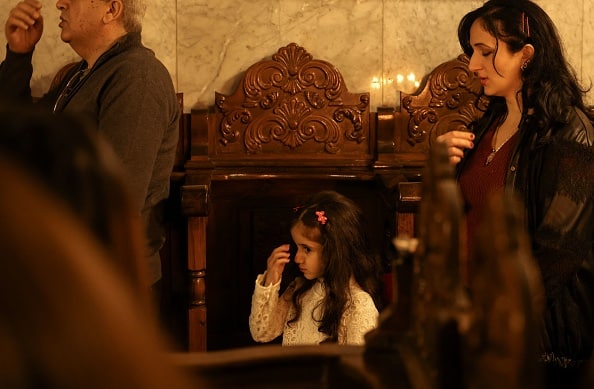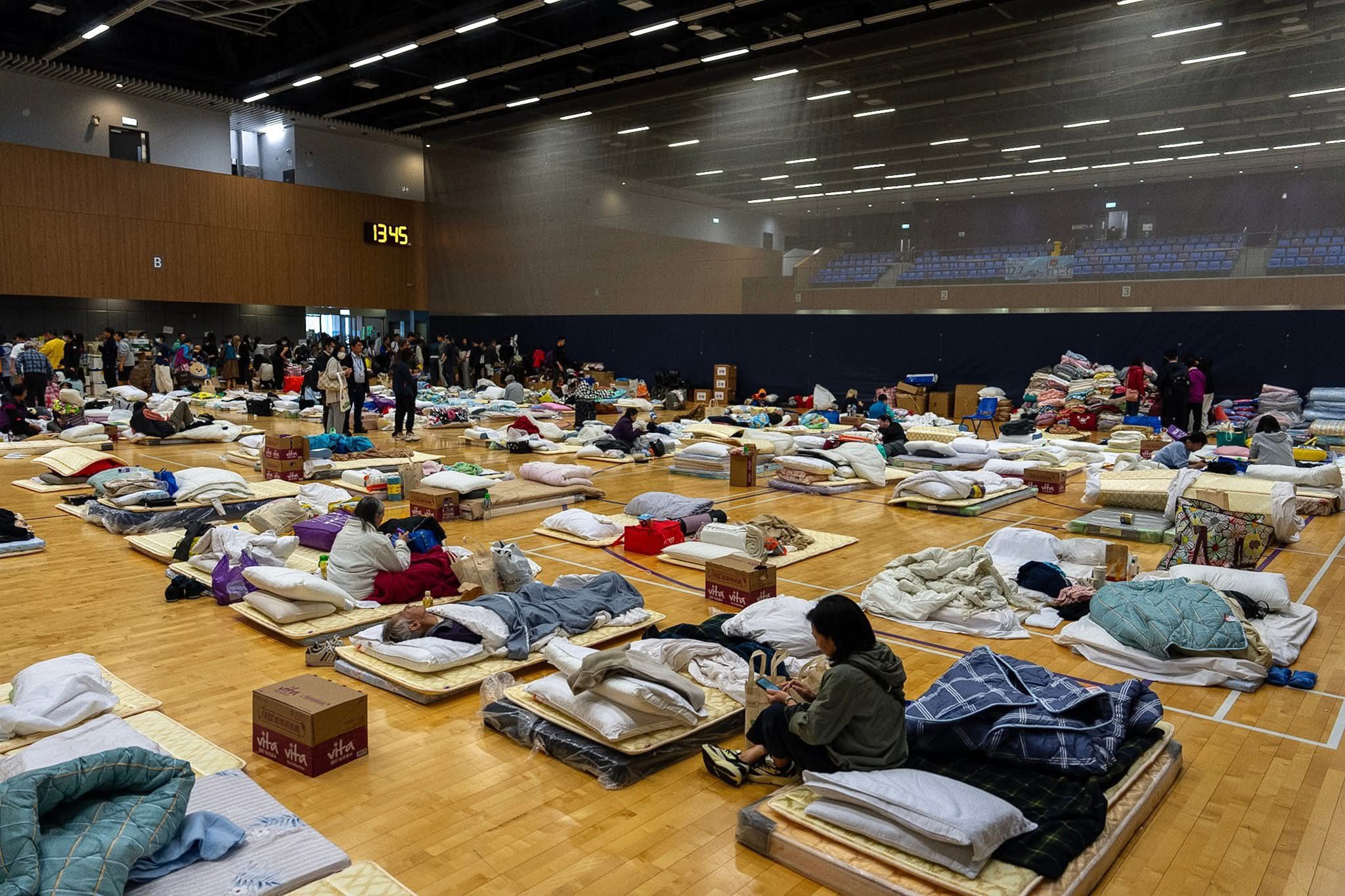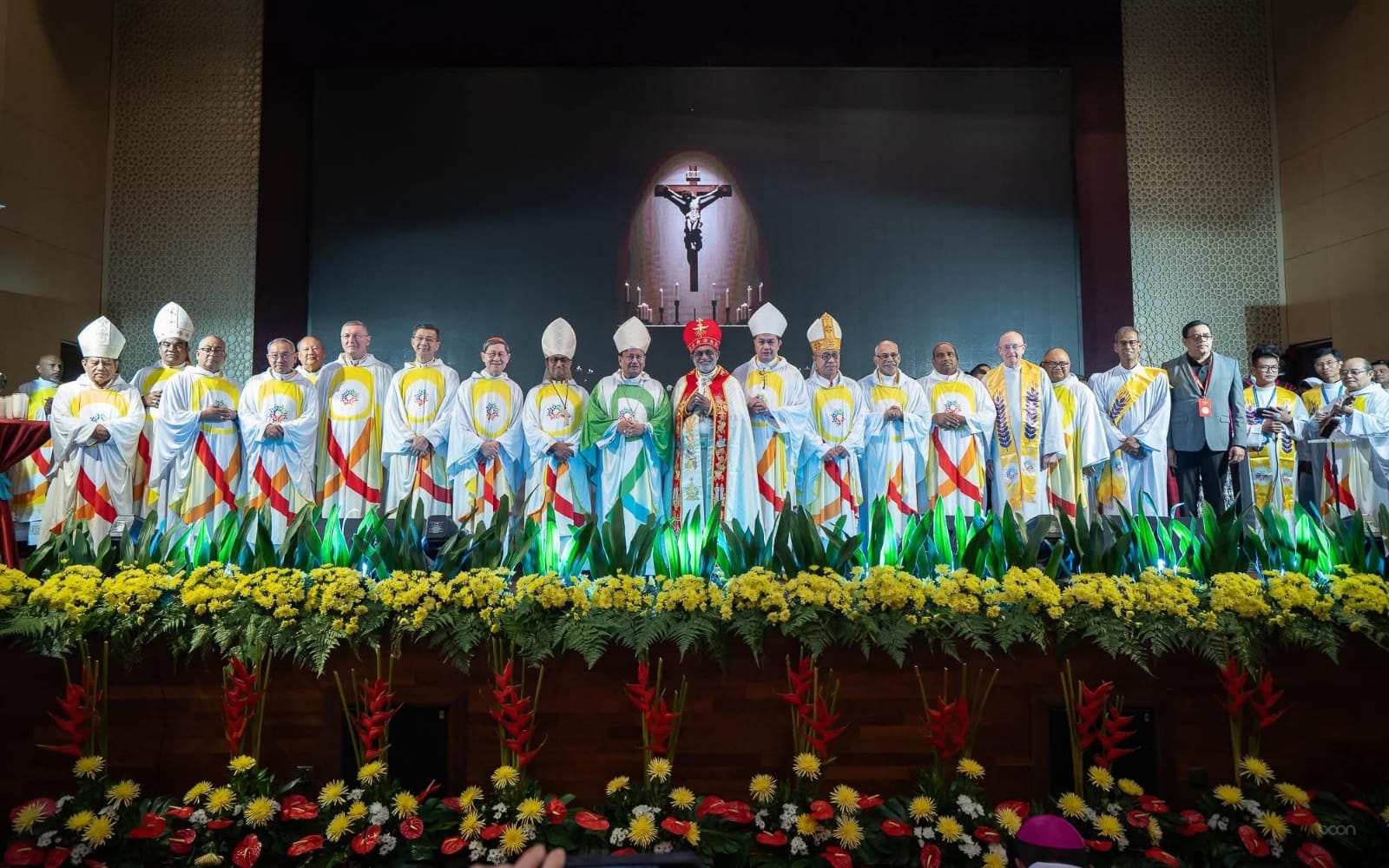Eastern Catholic Churches call for peace
Joaquim Magalhães de Castro
Shortly after the attack by Hamas militants on Israeli territory – in the early hours of Saturday, October 7 – which would give rise to the current conflict in the Middle East, Father Gabriel Romanelli, parish priest of the Catholic parish in Gaza, dedicated to the Holy Family, expressed “the overwhelming feelings of uncertainty full of sad forebodings” that prevail among the local population.
“No one knows what is coming and, unfortunately, there are no signs that what has just begun can end soon,” he said. Premonitory, the priest’s deduction. Especially because other phases of this ‘eternal’ conflict are still very fresh in everyone’s memory. The Argentine priest, member of the Institute of the Incarnate Word, faced situations much less serious than the current one, but long and exhausting confrontations they were.
Envisioning a similar scenario, Romanelli evoked the appeal of Pope Pius XII shortly before the outbreak of the Second World War: “Nothing is lost with peace, everything is lost with war”. An expression, moreover, repeated later by Saint John Paul II. All we can do is – as Father Gabriel says – “pray and hope that the conflict ends as quickly as possible, to make it less difficult to heal the wounds and then work towards justice and peace” that, from the bottom of their hearts, so many Israelis and Palestinians long for.
Also Religions for Peace, a movement that promotes inter-religious dialogue at an international level, “as a path to reconciliation and peace”, in the face of the escalation of the conflict, admitted that “without the recognition of the State of Israel and the rights of the Palestinian people to their own independent state” nothing will change. This organization, moreover, is in line with the similar Rabbis for Human Rights, based in Israel, which refuses to view the current tragedy as “an inevitability of destiny”.
No person – man, woman or child – should live in fear or seek refuge in shelters or outside their homeland. “Security is not a privilege: it is a fundamental right of every human being”, writes this organization in a statement published by some of the Israeli press. And this ‘right to security’ has long been stolen from all inhabitants of the Holy Land, whether Israeli or Palestinian.
“This is a cycle that has to end”, concludes the spokesperson for Rabbis for Human Rights. Already lamenting all the victims, this religious organization does not doubt the “new reality that awaits us”, once the military confrontation ends. The big question is: “Are we going to let ourselves be carried away by these failed concepts that have repeatedly proven to be harmful, or are we going to embark on a fundamentally different path?” A path that guarantees not only the peace of Israelis, but also that of Palestinians.
Among the organizations that have always been involved at a humanitarian level in the Holy Land is the Order of Malta, which is now demanding the immediate interruption of the “spiral of violence”. No terrorist act or indiscriminate use of force against innocent populations is justified. While calling for “respect for international humanitarian law, the rule of law and the protection of innocent people caught up in conflict”, the Order of Malta draws attention to the protection that is owed to those who work in hospitals and first responders. As we know, those who selflessly help the sick and needy often become victims themselves.
In a joint statement, the Catholic Patriarchs of the Middle East asked their faithful to intensify their prayers, “begging the Lord Jesus Christ” to restore peace in the land where He Himself was born. At the same time, they call on the great powers and the international community to work to end the war in the Holy Land, “implementing the international resolutions adopted by the United Nations” that recognize the “right to self-determination” of the people.
The leaders of the five Eastern Catholic Churches present in the Middle East and North Africa – in Rome since the beginning of October to participate in the Assembly of the Synod of Bishops – met to “share information, considerations and pastoral wishes about the moment that their communities are going through in the context of this new war.” The meeting was attended by Syrian-Catholic Patriarch Ignace Youssif III Younan, Maronite Patriarch Béchara Boutros Raï, Chaldean Patriarch Luis Raphael Sako, Coptic-Catholic Patriarch Ibrahim Isaac Sidrak and Patriarch of the Armenian Catholic Church Raphael Bedros XXI Minassian.
These five heads of the Eastern Catholic Churches – according to a statement released after the meeting – echoed the words and appeals made by Pope Francis since the beginning of the new outbreak of violence in the Holy Land, expressing, like the Pope, their closeness to the families of the victims and “all those who have lived and still live hours of terror and pain.”
Meanwhile, the Latin Patriarch of Jerusalem, Pierbattista Pizzaballa, on behalf of the Catholic bishops of the Holy Land, invited all parishes and religious communities to a day of fasting and prayer for peace and reconciliation. This initiative took place last Tuesday, October 17.
Around 1,100 Christians live in Gaza today. Like the Muslims, these Christians – whose historical roots go back two millennia – are isolated from the rest of the world, including holy sites in the West Bank.


 Follow
Follow


